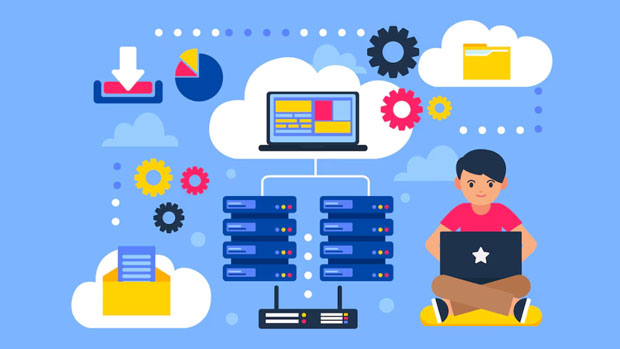The accuracy of API calls in Tamilrockers proxy HTTP services plays a significant role in determining operational costs for businesses relying on these proxies. As the demand for high-quality, precise data increases, organizations are looking at ways to optimize API calls to ensure a cost-effective service while maintaining performance. Accurate API calls help reduce errors, prevent unnecessary retries, and ensure the efficient retrieval of data. In contrast, inaccurate calls can lead to an increase in resource consumption, causing service degradation, additional overhead, and, ultimately, higher costs. Understanding how accuracy influences cost is crucial for businesses to optimize their use of proxy services. This article delves into how the accuracy of API calls impacts both the financial and operational aspects of using Tamilrockers proxy HTTP services. Introduction: The Role of Accuracy in API CallsAPI calls are the backbone of modern web services, including proxy services like Tamilrockers HTTP. These calls are responsible for sending requests and retrieving data. In the context of a proxy, APIs handle critical operations like routing requests through secure channels and ensuring that the data received is relevant and accurate. The precision with which these calls are made directly impacts the efficiency of the system. If a proxy service’s API calls are accurate, it ensures that only the correct and relevant data is retrieved with minimal redundancy, thus optimizing both cost and performance.However, when API calls lack precision, errors occur more frequently, leading to inefficient operations. These inefficiencies often manifest in the form of increased resource usage, unnecessary retries, and delays. Therefore, understanding the connection between API call accuracy and cost is essential for businesses that rely on proxies to streamline their operations.Impact on Resource ConsumptionOne of the most direct ways in which inaccurate API calls affect costs is through the consumption of resources. Each API call requires certain computational power and memory usage, and the more resources consumed, the higher the operational costs. If an API call is inaccurate or returns incorrect data, it often leads to additional API requests to resolve the issue, resulting in increased demand on the system's resources.This chain reaction of failed or inaccurate API calls can significantly impact the overall system performance. More server power and bandwidth are required to handle the increased volume of requests, leading to higher infrastructure costs. Furthermore, proxy services with lower accuracy may experience slower response times, resulting in inefficiencies that can further increase operational costs.Increased Latency and Network TrafficAnother way that inaccurate API calls drive up costs is through increased latency and network traffic. When an API call returns incorrect data, the system must reinitiate a new request to retrieve the correct data. This re-request process adds to the latency, delaying the overall service. In proxy HTTP services, where multiple hops are often involved in routing data, any added latency can significantly affect service quality.Increased network traffic further exacerbates this issue. More calls lead to a higher volume of data transferred across the network, consuming additional bandwidth. With the rising cost of data transfer, this added burden on the network can quickly drive up costs, particularly for businesses that rely heavily on proxy services for real-time data retrieval.Cost of Error Recovery and Customer ImpactInaccurate API calls not only result in the direct consumption of resources but also lead to indirect costs associated with error recovery and customer impact. When a proxy service delivers inaccurate data or fails to meet expectations, the organization must invest in error handling mechanisms to fix the issues. These mechanisms often include automated retries, manual intervention, or the development of fallback solutions—all of which contribute to increased operational costs.The customer experience can also suffer as a result of inaccurate API calls. If the proxy service fails to deliver accurate data or experiences high latency due to inefficiencies, customers may face delays or receive incorrect information. In highly competitive markets, poor customer experience can lead to customer churn, damaging the business’s reputation and, ultimately, its bottom line. As a result, companies may need to invest in improving their proxy infrastructure and optimize their API calls, further increasing costs.Optimization Strategies for Reducing CostsGiven the impact of API call accuracy on cost, businesses can take several approaches to optimize their systems and reduce expenses:1. Improved API Design and Error Handling Optimizing the design of the API itself can help reduce errors and improve accuracy. By ensuring that API calls are more resilient to edge cases and are better at handling errors, the system can avoid the need for unnecessary retries and error corrections. Furthermore, API requests should be validated and filtered to ensure that they are as precise as possible before being sent to the server.2. Caching and Rate Limiting Caching frequently requested data and implementing rate limiting can reduce the need for repeated API calls. This can significantly reduce network traffic and server load. By only requesting data that is genuinely needed and limiting redundant calls, businesses can maintain cost-effective proxy operations while ensuring data accuracy.3. Monitoring and Analytics Continuously monitoring API performance and using analytics tools can help identify patterns in inaccurate calls. By analyzing trends in error rates, latency, and response times, businesses can pinpoint specific issues with API calls and work towards resolving them. Monitoring tools can also help forecast potential bottlenecks in the system and prevent errors before they escalate into costly problems.4. Using Advanced Proxy Services Using advanced proxy services that specialize in high accuracy and reliability can help reduce costs. These services are often optimized for minimal error rates and efficient data retrieval, thus ensuring that API calls are precise, reducing the likelihood of errors and minimizing the need for retries.Conclusion: The Bottom LineThe accuracy of API calls in Tamilrockers proxy HTTP services is not just a technical issue—it is a critical factor in managing operational costs. Inaccurate API calls lead to increased resource consumption, network traffic, latency, and error recovery efforts. As businesses look to optimize their proxy usage, understanding the cost implications of these inaccuracies is essential. By implementing strategies such as improved API design, caching, rate limiting, and advanced monitoring, organizations can significantly reduce costs while maintaining high service quality. Ultimately, the key to successful proxy service utilization lies in balancing accuracy and efficiency to ensure a cost-effective, reliable solution.
Jul 23, 2025



































































